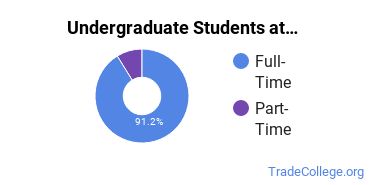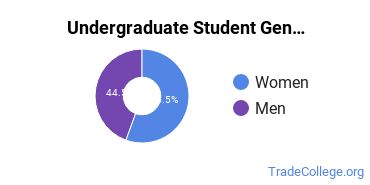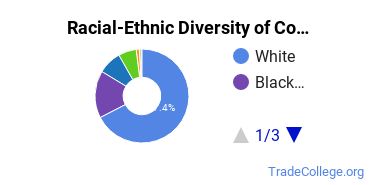Find Trade Colleges
Coastal Carolina University Trade Programs
Located in Conway, South Carolina, Coastal Carolina University is a public institution. The city atmosphere of Conway makes it a great place for students who enjoy having lots of educational and entertainment options.
Featured schools near , edit
Where Is Coastal Carolina University?

Contact details for Coastal Carolina University are given below.
| Contact Details | |
|---|---|
| Address: | 103 Tom Trout Drive, Conway, SC 29526 |
| Phone: | 843-347-3161 |
| Website: | www.coastal.edu |
Can I Afford Coastal Carolina University?
| In State | Out of State | |
|---|---|---|
| Tuition | $11,460 | $29,448 |
| Fees | $180 | $180 |
| Books and Supplies | $1,210 | $1,210 |
| On Campus Room and Board | $11,418 | $11,418 |
| On Campus Other Expenses | $4,150 | $4,150 |
Student Loan Debt
Almost 66% of college students who graduated with the class of 2018 took out student loans, but that percentage varies from school to school. At Coastal Carolina University, approximately 64% of students took out student loans averaging $10,880 a year. That adds up to $43,520 over four years for those students.
Coastal Carolina University Undergraduate Student Diversity

There are also 618 graduate students at the school.
Gender Diversity
Of the 8,529 full-time undergraduates at Coastal Carolina University, 44% are male and 56% are female.

Racial-Ethnic Diversity
The racial-ethnic breakdown of Coastal Carolina University students is as follows.

| Race/Ethnicity | Number of Grads |
|---|---|
| Asian | 72 |
| Black or African American | 1,527 |
| Hispanic or Latino | 482 |
| White | 5,683 |
| International Students | 108 |
| Other Races/Ethnicities | 657 |
Geographic Diversity
South Carolina students aren't the only ones who study at Coastal Carolina University. At this time, 42 states are represented by the student population at the school.
Over 54 countries are represented at Coastal Carolina University. The most popular countries sending students to the school are South Africa, Netherlands, and France.
Coastal Carolina University Trade School Concentrations
The table below shows the number of awards for each concentration.
| Major | Bachelor’s | TOTAL |
|---|---|---|
| Health Care Management | 9 | 9 |
| TOTAL | 9 | 9 |
References
*The racial-ethnic minorities count is calculated by taking the total number of students and subtracting white students, international students, and students whose race/ethnicity was unknown. This number is then divided by the total number of students at the school to obtain the racial-ethnic minorities percentage.
- College Factual
- National Center for Education Statistics
- Image Credit: By DKHardee/Kyle Hardee under License
More about our data sources and methodologies.
